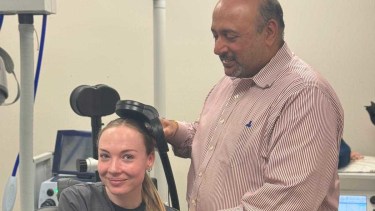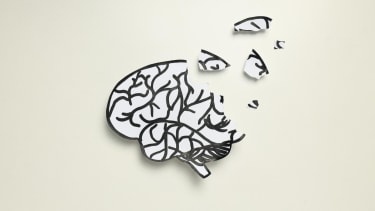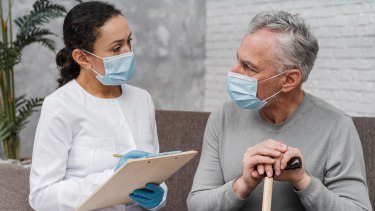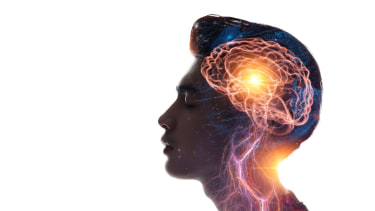
TMS Therapy
TMS Therapy in South Jersey
For those who haven't found relief from antidepressants, Transcranial Magnetic Stimulation (TMS) is a safe, FDA-approved breakthrough. This non-invasive therapy uses gentle magnetic pulses to restore healthy function in the brain's mood centers.
At Shore Clinical TMS & Wellness Center, we’ve seen TMS therapy for depression transform lives—helping patients regain focus, energy, and emotional balance without the side effects of traditional medications. For expert TMS therapy in NJ, your journey back to feeling like yourself starts here.

Benefits of TMS Treatment

If you’re considering TMS in New Jersey, here are some key advantages:
- Proven effectiveness: Over 60% of patients experience a significant reduction in depression symptoms, and one-third achieve full remission.
- Non-invasive & medication-free: Avoid side effects like weight gain or memory loss.
- Safe & FDA-approved: Recognized since 2008 for treatment-resistant depression and other mental health conditions.
- Versatility: Shows promise in treating anxiety, PTSD, and cognitive issues.
Is TMS Therapy Right for You?
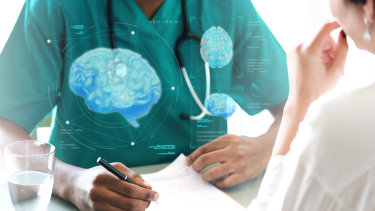
TMS therapy is a powerful option for individuals who have not found relief from traditional treatments. We specialize in using TMS to treat:
- Treatment-Resistant Depression (TRD): For those who have tried multiple antidepressants without adequate improvement.
- Major Depressive Disorder (MDD): As a primary or adjunctive treatment to reduce symptoms and promote remission.
- Anxious Depression: To address the combined symptoms of anxiety and depression.
- Obsessive-Compulsive Disorder (OCD): Using specialized Deep TMS protocols to target specific brain circuits.
- Other Conditions: Showing promise in treating PTSD and other mood disorders.
How TMS Therapy Works
TMS therapy targets the brain's Dorsolateral Prefrontal Cortex (DLPFC)—a region involved in mood regulation. Gentle magnetic pulses activate underactive neural pathways, promoting neuroplasticity—the brain’s natural ability to form new, healthier connections. This process improves the brain’s capacity to regulate emotions, leading to lasting symptom relief.

A standard course of treatment involves sessions lasting 20-40 minutes, five days a week, for 4-6 weeks.

As a leading TMS center of NJ, we use the state-of-the-art MagVenture TMS device to ensure your treatment is:
- Precise: We use advanced coils to map your brain and pinpoint the exact location for stimulation, ensuring the best possible outcome.
- Effective & Reliable: A sophisticated cooling system allows for consistent and reliable sessions without delays or discomfort.
- Comfortable: From the fully adjustable treatment chair to the stabilizing head pillows, every aspect of your session is designed for your comfort and relaxation.
Types of TMS Therapy
Regular TMS (rTMS)
rTMS is a non-invasive procedure that uses magnetic pulses to stimulate nerve cells in the brain, particularly in areas associated with mood regulation. It's effective for treating major depressive disorder (MDD) and is typically administered in daily sessions over several weeks.
Deep TMS
Deep TMS penetrates deeper into the brain, reaching broader areas and stimulating deeper neural networks than rTMS. It uses a specialized coil to target brain regions linked to complex mental health conditions, including OCD (as approved by the FDA) and certain types of depression.
Accelerated TMS
Accelerated TMS is a fast-tracked version of TMS therapy that uses Theta Burst Stimulation (TBS) to deliver the benefits of TMS in a shorter timeframe than that of rTMS. It allows for multiple sessions per day, reducing the overall treatment period from weeks to just a few days.
TMS Conditions We Treat

TMS Therapy for Teens With Treatment-Resistant Depression
Our TMS therapy offers hope to adolescents with treatment-resistant depression. It provides a safe and effective alternative to traditional treatments.

TMS for Cognition / Attention / Memory Improvement
Enhance your attention, memory, and overall cognitive function with our specialized TMS therapy.

TMS for Neurodegenerative Disorders
Get help in managing neurodegenerative disorders through our innovative TMS therapy, tailored to your needs.

TMS for Autism Spectrum Disorder
With targeted stimulation, our TMS therapy for autism improves neural connectivity for better social interaction and communication skills.
TMS Therapy Cost & Insurance
Most insurance plans, including Medicare, Aetna, Cigna, and Blue Cross Blue Shield, cover TMS therapy because of its high success rates and long-term cost-effectiveness. Our dedicated staff handles all insurance pre-authorizations for you, so you can focus entirely on your well-being.
Why Choose Shore Clinical TMS & Wellness Center for TMS Therapy in New Jersey
- Expert Team: Our highly trained physicians and certified TMS technicians have years of experience delivering safe, effective treatments with proven results.
- Personalized Care: We tailor every TMS therapy plan to your unique symptoms, goals, and lifestyle, ensuring the best possible outcome.
- Comprehensive Support: From your first consultation through every session and follow-up, our compassionate team is with you every step of the way—guiding, monitoring, and supporting your journey to better mental health.
Discover how TMS therapy for depression at Shore Clinical TMS & Wellness Center can help you reclaim your mental health.
Call us today to schedule your consultation and start your journey to recovery.
Frequently Asked Questions (FAQs) on TMS Therapy
Who administers TMS?
Our TMS physician always prescribes TMS and determines the initial motor threshold (the optimal amplitude of treatment). The treatment itself is administered by an experienced TMS technician under the supervision of the TMS physician. They will always be present to monitor the patient during the treatment. The patient can stop a treatment at any time by requesting the staff member present.
How long does TMS therapy last?
A total course of TMS treatment consists of 36 sessions completed in about 7-8 weeks. The first 30 sessions are 5 days per week (Monday through Friday), and the last 6 sessions are usually tapered in a 3-2-1 fashion at Dr. Gowda’s discretion. The first appointment will be about 40 minutes long because informed consent forms, initial brain mapping, and motor thresholds must be completed before starting. Otherwise, each treatment is approximately 20 to 30 minutes long.
Remission rates vary per patient. It’s not uncommon to see many people enjoy the TMS benefits for 1 to 3 years or more.
Does TMS therapy actually work?
Studies have shown that TMS is effective in Major Depressive Disorder treatment. For more information, please refer to our TMS results.
What are the signs that TMS is working?
You’ll know if TMS is working when you notice a gradual improvement in your mood over an extended time period. Some people may feel the effects of TMS therapy within the first few weeks of receiving the treatment. Others may not notice any effects unless they complete the full course of TMS treatment.
Does TMS have side effects?
Virtually, none. Compared to other treatments for depression, TMS is generally well-tolerated. The most common side effects reported by patients are mild discomfort at the treatment site, blurry vision, fatigue, facial twitching, temporary tinnitus and possible hearing loss. Development of a slight headache during the first week of treatment is also possible. If you experience a headache, inform your TMS physician immediately, so they can make coil adjustments to avoid any discomfort.
The most serious risk of TMS is seizures. However, the risk of a seizure is exceptionally low, and a thorough check on a client’s medical history is conducted to rule out this risk.
Who should not get TMS therapy?
Patients with a history of seizures may not be eligible for TMS treatment, although this can be discussed with the doctor. Patients with any type of non-removable metal in their heads (with the exception of braces or dental fillings) should not receive TMS. Failure to follow this rule could cause the object to heat up, move, or malfunction, and result in serious injury or even death.
The following is a list of metal implants that can prevent a patient from receiving TMS:
- Aneurysm clips or coils
- Stents in the neck or the brain
- Deep brain stimulators
- Electrodes to monitor brain activity
- Cochlear implants in your ears
- Shrapnel or bullet fragments in or near the head
- Facial tattoos with metallic or magnetic-sensitive ink
If someone had an MRI done in the past, they can generally go for TMS.
What do I do when my TMS treatment is completed?
After you complete the first 30 TMS sessions, the last 6 sessions are usually tapered out over a two-week period. Depending on your insurance, you may be approved for an additional 15 maintenance TMS treatments after your 36th session.









